-
-
- Standards Committee
- Advancement of the Professions Committee
- Audit and Risk Committee
- Education Committee
- Disciplinary Committee
- Charter Case Committee
- Preliminary Investigation Committee and Disciplinary Committee Liaison Committee
- Registration Committee
- Preliminary Investigation Committee
- Paper classification: some definitions
-
-
-
-
- About extra-mural studies (EMS)
- EMS requirements
- Information for vet students
- Information for EMS providers
- Information for vet schools
- Temporary EMS requirements
- Practice by students - regulations
- Health and safety on EMS placements
- EMS contacts and further guidance
- Extra-mural studies fit for the future
-
-
- Code of Professional Conduct for Veterinary Surgeons
- Code of Professional Conduct for Veterinary Nurses
- Contact the Advice Team
- XL Bully dog ban
- 'Under care' - guidance
- Advice on Schedule 3
- Controlled Drugs Guidance – A to Z
- Dealing with Difficult Situations webinar recordings
- FAQs – Common medicines pitfalls
- FAQs – Routine veterinary practice and clinical veterinary research
- FAQs – Advertising of practice names
- GDPR – RCVS information and Q&As
-
- Accrediting veterinary degrees
- Accrediting veterinary nursing qualifications
- Reasonable adjustments for student vets
- Health and disability in veterinary medicine study and practice
- The role of the veterinary schools and the RCVS
- Reasonable adjustments and the Equality Act 2010
- Reasonable adjustments and Day One Competences
- Examples of reasonable adjustments for vet students
- Annex
- Reasonable adjustments for student vets - summary
- Reasonable adjustments for student veterinary nurses
- Health and disability in veterinary nurse education and training
- Reasonable adjustments for students and the UK disability discrimination legislation
- Educational assessment of veterinary nurses
- Roles of key stakeholders in the application of reasonable adjustments
- Examples of reasonable adjustments for vet nurse students
- Embracing reasonable adjustments for student vet nurses - summary
- External review of the RCVS by ENQA
- Requirements for remote and online student assessments
Veterinary Graduate Development Programme (VetGDP)
The Veterinary Graduate Development Programme (VetGDP) provides tailored support to help recent graduates, vets who have qualified overseas, and those returning to the UK Register after time away adjust smoothly to their new roles.
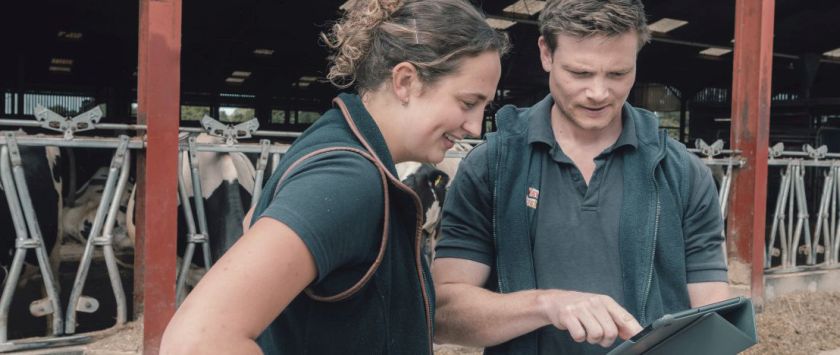
On this page:
- Who is the VetGDP for?
- How is the VetGDP delivered?
- VetGDP roles and responsibilities
- Entrustable Professional Activities
- How long does the VetGDP take?
- Guidance for different groups
Who is the VetGDP for?
The VetGDP is for:
- Veterinary graduates who:
- Completed their qualification in or after summer 2021,
- Are starting their first professional role,
- And have not yet completed the VetGDP
Also:
- Overseas-qualified, or UK-qualified vets returning from abroad, with less than 18 months' experience in a role comparable to the one they are starting in the UK.
- Vets rejoining the UK Register after 5+ years away.
Please note: exemptions may apply.
How is the VetGDP delivered?
Veterinary practices or workplaces hiring recent graduates - as well as some returning or overseas qualified vets - must offer the VetGDP.
To become VetGDP-accredited, employers must provide:
- At least one designated VetGDP Adviser who has completed the required training. The adviser supports the graduate in developing their confidence and competence.
- A clear commitment to supporting both the graduate and the VetGDP Adviser throughout the programme.
VetGDP roles and responsibilities
Under the RCVS Code of Professional Conduct, the graduate, the VetGDP Adviser, and the employer each have specific responsibilities.
- The graduate and the VetGDP Adviser must actively participate in the programme.
- The employer must provide protected time to allow both parties to participate fully.
The VetGDP is built around ongoing support and feedback. Regular meetings between the graduate and the adviser should be held to review progress, with reflections and feedback documented in the VetGDP e-portfolio.
Entrustable Professional Activities (EPAs)
Entrustable Professional Activities (EPAs) form the foundation of the VetGDP.
They are tasks relevant to the graduate's role that they're expected to be able to perform competently and confidently by the end of the programme.
Graduates work with their VetGDP Adviser to select EPAs relevant to their role.
How long does the VetGDP take?
The VetGDP typically takes 12-18 months to complete.
Graduates should begin the programme as soon as they start their new role.
If additional time is needed, they should email the VetGDP team at [email protected] to discuss their options.
Graduates 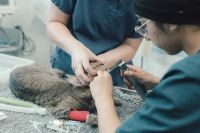
Starting your first professional role? Discover how the VetGDP will support your development.
Overseas vets 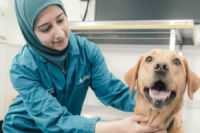
Qualified overseas or returning to the UK? Find out what the VetGDP means for your UK career.
 Vets rejoining the UK Register
Vets rejoining the UK Register
Been off the UK Register for five years or more? Learn how the VetGDP can help you return with confidence.
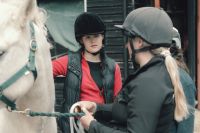 Employers
Employers
Looking to hire a graduate or other vet required to complete the VetGDP? Here's how to get your workplace VetGDP-ready.
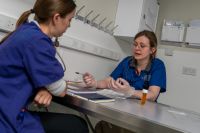 VetGDP Advisers
VetGDP Advisers
Been on the UK Register for at least three years and interested in mentoring? Learn how to become a VetGDP Adviser.
